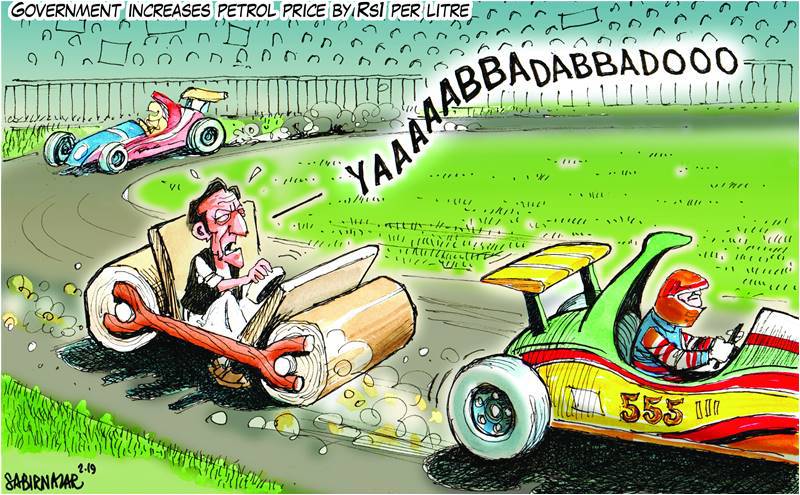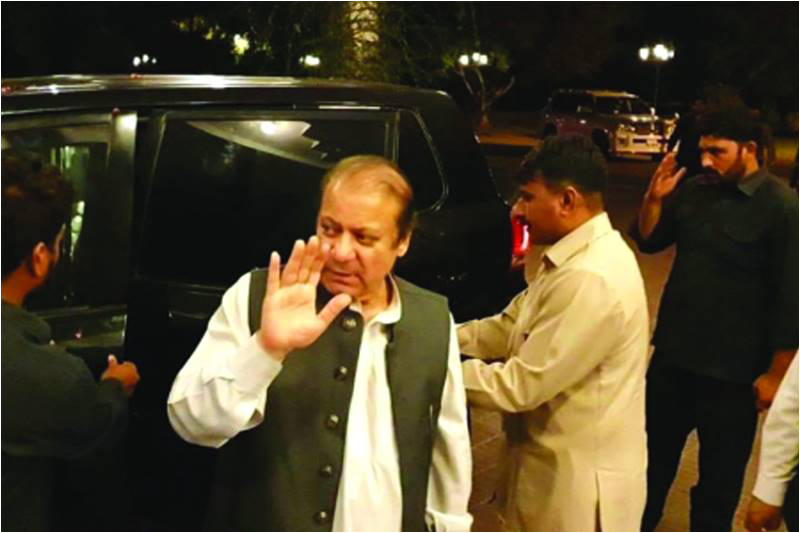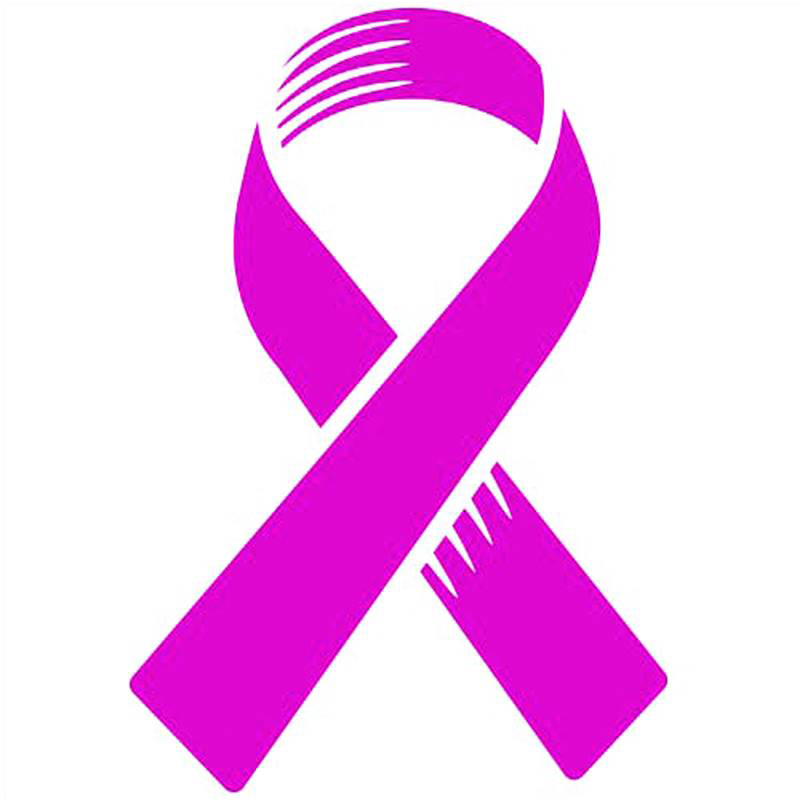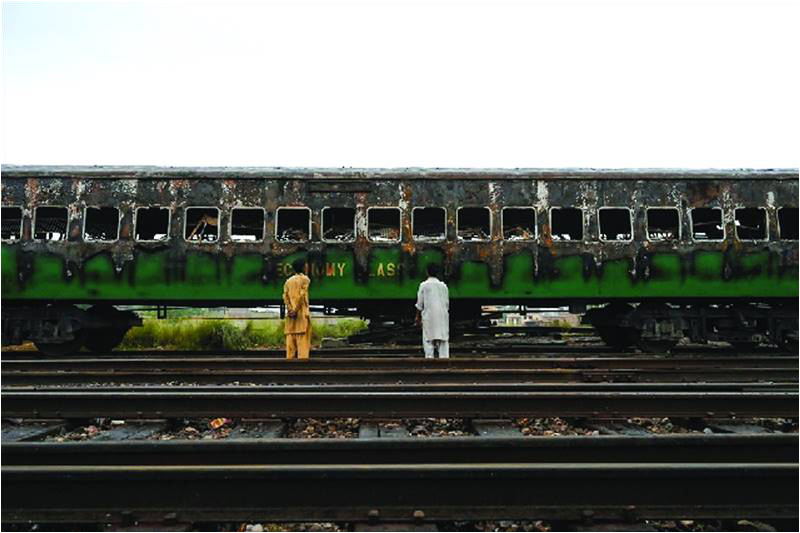
Special treatment
Madam,
I have lived in Europe for many years and the main thing that I find shocking in Pakistan this society is dominated by nawabs, chaudhrys, waderas and the likes. People greatly respect, even worship, those in authority, including political leaders, irrespective of whether they are worthy of it or not.

Seven decades of independence have done nothing to rid us of this slave mentality. This tendency is evident in news reports and writings about Nawaz Sharif in which he is mentioned as a former prime minister, even three times prime minister, and not as a convicted criminal that he in fact is.
Also when people request facilities for Nawaz Sharif, it is completely forgotten that as a convicted prisoner he lost many of his rights. For example, freedom of movement is a fundamental right but convicted prisoners are denied that legally — as retribution for their crimes. I sincerely hope we develop a capacity to see and treat people for what they really are.
Myra Arshad,
Lahore.
Breast cancer
Madam,
Incidents of breast cancer are rising at an alarming rate in Pakistan. Many women are unaware of this dangerous disease at the initial stage and when it approaches the final stage, people are too late in identifying. According to a seminar in Islamabad on breast cancer by Samina Arif Alvi, in a year 90,000 women are diagnosed with breast cancer in Pakistan. It is estimated 40,000 lose their lives every year. In fact, it is estimated that in October, about 3,000 women were diagnosed with breast cancer. The main reason behind this is that rural women are illiterate who don’t know self-examination and don’t tell others information about themselves.

A recent report claimed that in Asia, Pakistan has the largest rate of breast cancer. It is the second leading cause of death among women. An estimated 83,000 cases are being annually reported in our country which means that one in every nine Pakistani women develops breast cancer at some stage of her life.
According to the Mayo Clinic, after skin cancer, breast cancer is the most common cancer diagnosed in women. Breast cancer can occur in both men and women, but it’s far more common in women.
Substantial support for breast cancer awareness and research funding has helped created advances in the diagnosis and treatment of breast cancer.
Survival rates have increased, and the number of deaths associated with this disease is steadily declining, largely due to factors such as earlier detection, a new personalised approach to treatment and a better understanding of the disease.

Signs to look out for: a lump in the breast or thickening that feels different from the surrounding tissue, change in the size, shape or appearance of a breast, fluid coming from the nipple, or a red or scaly skin.
Doctors know that breast cancer occurs when some breast cells begin to grow abnormally. These cells divide more rapidly than healthy cells do and continue to accumulate, forming a lump or mass. Cells may spread (metastasize) through your breast to your lymph nodes or to other parts of your body.
Breast cancer most often begins with cells in the milk-producing ducts (invasive ductal carcinoma). It may also begin in the glandular tissue called lobules (invasive lobular carcinoma) or in other cells or tissue within the breast.
Researchers have identified hormonal, lifestyle and environmental factors that may increase your risk of breast cancer. But it’s not clear why some people who have no risk factors develop cancer, yet other people with risk factors never do. It’s likely that breast cancer is caused by a complex interaction of your genetic makeup and your environment.
I request the government to hold awareness campaigns and free clinics where women can go for mammograms.
Muna Manzoor,
Balochistan.
Who is to blame?
Madam,
Although it is true that the railway minister has is arrogant, overbearing, and unfit for a ministerial portfolio, I think he should not to be solely blamed for the Tezgam tragedy.
There is no doubt that the passengers were travelling with gas cylinders. It is difficult to believe that the cylinders were empty. They would have no time to get them filled at Raiwind and must be carrying them filled and they must have tried to prepare tea and warm their meals on board the train. There can be no doubt in this regard.
At the same time, our minister talks on all subjects and says nothing about his own ministry. There have been more than 80 train accidents in which 75 human beings were burnt to death and scores were injured. The minister did not wait an hour to announce money as compensation for the dead and injured. The dead need no money except for burial.
In all civilised countries, the minister resigns immediately or the head of government asks him to resign. But the railway minister did not resign and neither did Prime Minister Imran Khan ask him to step down.
In all civilised nations, the national flag is lowered at half-mast for a few days on such tragic occasions, but nothing of this sort was ordered by the prime minister. In civilised countries, all parades are postponed but not by Imran Khan. I wonder what would have happened if a family member of Sheikh Rashid or some other VIP was burnt in this train. God save our country!
Javed Shah,
Multan.

